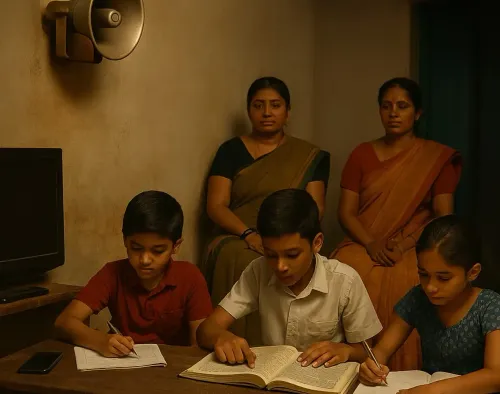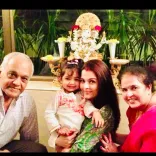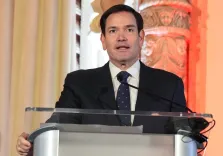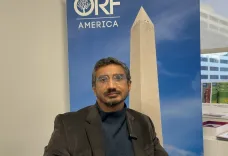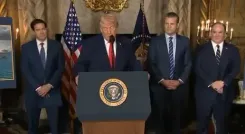Did the SC Deny a Plea Against Misuse of Savarkar's Name?
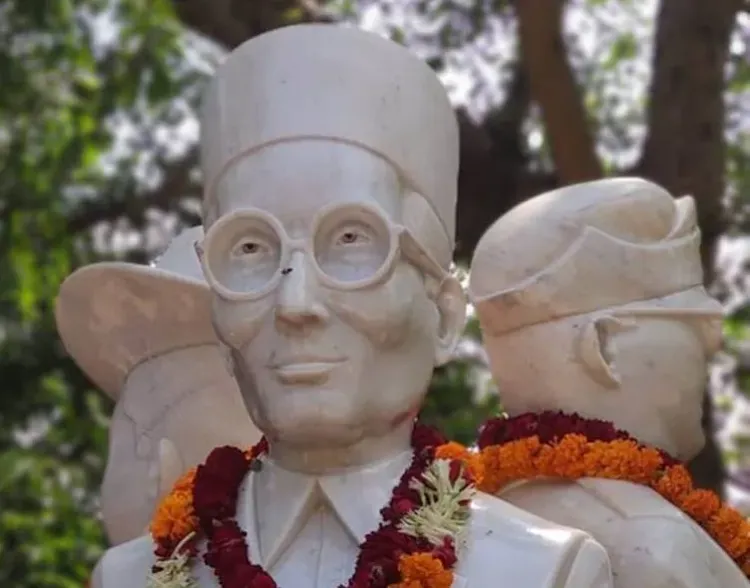
Synopsis
Key Takeaways
- The Supreme Court rejected the plea to include Savarkar's name in a protective list.
- Freedom of speech is a critical aspect of the ruling.
- The petition raised concerns about the influence of political figures on the youth.
- Future derogatory statements by Rahul Gandhi could lead to court action.
- The ruling highlights the importance of honoring historical figures.
New Delhi, May 27 (NationPress) The Supreme Court on Tuesday declined to consider a petition requesting the addition of the name of freedom fighter Vinayak Damodar Savarkar to the list under the Emblems and Names (Prevention of Improper Use) Act, 1950. This legislation was established by Parliament to avert the misuse of specific emblems and names for commercial or professional purposes.
A panel comprising Chief Justice of India (CJI) B R Gavai and Justice Augustine George Masih remarked that the petitioner, representing himself, failed to establish a breach of fundamental rights as outlined in Part-III of the Constitution, which is essential to file a writ petition directly in the Supreme Court under Article 32.
The petitioner, who holds a Ph.D. in Universalisation of Primary Education and identifies himself as a serious researcher, expressed concern that the statements made by Rahul Gandhi, the Leader of Opposition (LoP) in the Lok Sabha, regarding Savarkar could mislead the younger generation away from their fundamental duties.
According to Section (b) of Article 51A in the Indian Constitution, every citizen bears the responsibility to value and uphold the noble ideals that inspired our national struggle for independence.
"As of June 9, 2024, Rahul Gandhi holds the position of Leader of Opposition in the Lok Sabha, making him a High Constitutional functionary ranked 7th in the Table of Precedence. Therefore, his views, which could be dismissed in the past, can no longer be ignored. His animosity towards Shri Savarkar, who passed away long before his birth, is perplexing," the petition stated.
It further argued that criminal defamation cases, which might lead to Gandhi's imprisonment, are not a suitable resolution, and that the Congress leader requires a lesson in humility through appropriate community service. Nonetheless, such a sanction lies beyond the authority of any court except the Supreme Court, according to the plea.
Last month, a bench of Justices Dipankar Datta and Manmohan reprimanded Rahul Gandhi for his alleged disparaging remarks about Savarkar, warning that any future derogatory comments could prompt the top court to take suo motu action.
"Let’s be clear, any additional statements and we will proceed with suo motu! We will not permit you to speak ill of our freedom fighters. They fought for our freedom, and this is how we honor them?" it cautioned.
The Supreme Court had issued a temporary order suspending the previous court’s directive summoning Rahul Gandhi for trial under Sections 153-A and 505 of the now-repealed Indian Penal Code (IPC). In November 2022, during his Bharat Jodo Yatra, Rahul Gandhi reportedly made defamatory remarks about Savarkar at a rally in Akola, Maharashtra.




